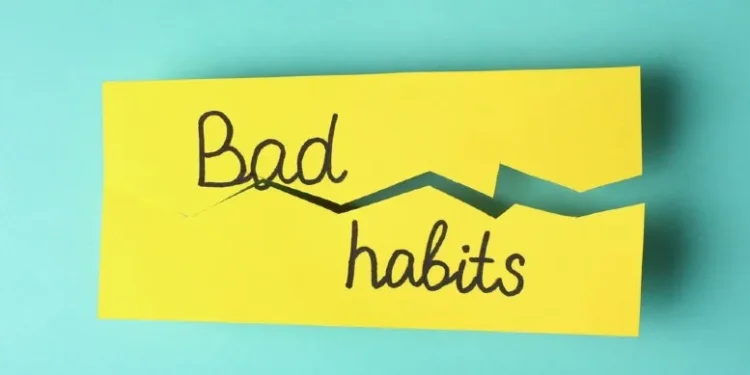Breaking bad habits is one of the most powerful changes you can make to improve your life, but it often feels like an uphill battle. Whether it’s procrastination, overeating, excessive screen time, or smoking, these patterns can hold you back from reaching your full potential and maintaining a healthy lifestyle. Understanding why habits form and applying the right strategies to break them is crucial for lasting success. This blog explores the psychology behind habits and offers effective steps to overcome them, empowering you to make room for healthier behaviors.
Understanding the Habit Loop: To successfully break a bad habit, it’s important to understand how it works. Habits are formed through a loop of three components: cue, routine, and reward. The cue triggers your brain to initiate the behavior, the routine is the behavior itself, and the reward is what reinforces the habit and makes your brain want to repeat it in the future. Identifying each element in your habit loop is the first step toward changing it.
Common Reasons Why Breaking Bad Habits Is Difficult:
- Comfort and Familiarity: Habits often develop as a way to seek comfort or relief, making them hard to abandon even when we know they’re not beneficial.
- Lack of Awareness: Many habits become so ingrained that they happen without conscious thought, making it difficult to notice them until the behavior is already in progress.
- Instant Gratification: Bad habits usually offer a quick payoff, whether it’s a dopamine hit from checking social media or the immediate taste satisfaction of sugary snacks.
Strategies to Break Bad Habits:
- Identify Triggers and Replace the Routine: Keep a log of when your habit occurs and what circumstances (time, place, emotions) contribute to it. Once you identify triggers, experiment with replacing the old routine with a new, healthier one that offers a similar reward. For example, replace a stress-eating habit with taking a short walk or meditating.
- Set Clear and Attainable Goals: Make your goals specific and achievable. Instead of saying, “I will stop procrastinating,” commit to working on a task for a set period, like 15 minutes. Clear goals help keep you on track and provide a sense of accomplishment.
- Use the Power of Visualization: Visualizing your future self free of the bad habit and imagining the positive changes can motivate you to persist. This mental exercise builds anticipation for the benefits you’ll reap and reinforces your commitment.
- Practice Mindfulness: Mindfulness helps increase your awareness of when and why you engage in a particular habit. By being present, you can pause and make a conscious decision to redirect your behavior before the habit takes over.
- Replace Negative Self-Talk: Changing how you talk to yourself can influence your mindset. Instead of saying, “I can’t do this,” try reframing it to, “I’m learning to overcome this.” This subtle shift promotes self-compassion and resilience.
Practical Techniques for Habit Change:
- Use the 2-Minute Rule: Make your new, positive behavior so easy that it takes just two minutes to start. If you’re trying to stop late-night snacking, replace it with a two-minute practice of brushing your teeth or drinking a glass of water.
- Build a Support System: Enlist friends or family members to hold you accountable. Sharing your progress and challenges with someone you trust can help reinforce your commitment.
- Reward Your Progress: Celebrate small victories to stay motivated. Each small step toward breaking the habit deserves recognition, whether it’s a week without a cigarette or completing a work task without delay.
The Role of Consistency and Patience: Breaking a habit takes time; research shows it can take anywhere from 21 to over 60 days to rewire your brain for new behavior. Consistency and patience are key. When setbacks happen—and they likely will—acknowledge them without judgment and refocus on your goal. Progress is not always linear, but it’s the dedication to keep moving forward that leads to lasting change.
When to Seek Professional Help: If a habit has severe impacts on your health or well-being and is challenging to break on your own, consider seeking help from professionals like therapists or support groups. Cognitive-behavioral therapy (CBT) and coaching can offer guidance and techniques tailored to your specific needs.
Final Thoughts: Breaking bad habits isn’t just about stopping something negative; it’s about creating a healthier, more fulfilling life. By understanding the mechanisms behind your habits and applying targeted strategies, you can replace detrimental patterns with behaviors that nurture your growth. Small, consistent efforts build up over time, leading to big changes. Dive into our guide for deeper insights, expert advice, and practical steps to break your bad habits and transform your routine.












